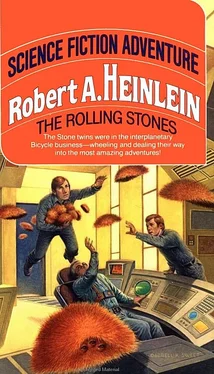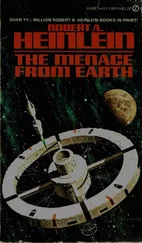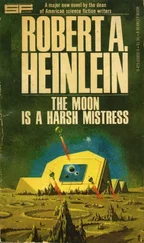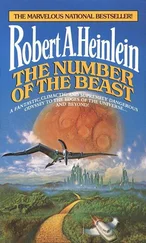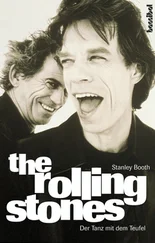Robert Heinlein - The Rolling Stones
Здесь есть возможность читать онлайн «Robert Heinlein - The Rolling Stones» весь текст электронной книги совершенно бесплатно (целиком полную версию без сокращений). В некоторых случаях можно слушать аудио, скачать через торрент в формате fb2 и присутствует краткое содержание. Жанр: Фантастика и фэнтези, на английском языке. Описание произведения, (предисловие) а так же отзывы посетителей доступны на портале библиотеки ЛибКат.
- Название:The Rolling Stones
- Автор:
- Жанр:
- Год:неизвестен
- ISBN:нет данных
- Рейтинг книги:5 / 5. Голосов: 1
-
Избранное:Добавить в избранное
- Отзывы:
-
Ваша оценка:
- 100
- 1
- 2
- 3
- 4
- 5
The Rolling Stones: краткое содержание, описание и аннотация
Предлагаем к чтению аннотацию, описание, краткое содержание или предисловие (зависит от того, что написал сам автор книги «The Rolling Stones»). Если вы не нашли необходимую информацию о книге — напишите в комментариях, мы постараемся отыскать её.
The Rolling Stones — читать онлайн бесплатно полную книгу (весь текст) целиком
Ниже представлен текст книги, разбитый по страницам. Система сохранения места последней прочитанной страницы, позволяет с удобством читать онлайн бесплатно книгу «The Rolling Stones», без необходимости каждый раз заново искать на чём Вы остановились. Поставьте закладку, и сможете в любой момент перейти на страницу, на которой закончили чтение.
Интервал:
Закладка:
"A chance, of course." She did not elaborate, nor did she need to. Spacesickness like seasickness does not itself kill, but starvation and exhaustion do.
Castor whistled. "A fine time to find it out, after it's too late. We're akeady in orbit for Mars."
Hazel said sharply. "You know better than that, Castor."
"Huh?"
"Of course, dopy," his twin answered. "We'll have to tack back.' :1
"Oh." Castor frowned. "I forgot for the moment that this was a two-legged jump." He sighed. "Well, that's that. I guess we go back." There was one point and one only at which they could decide to return to the Moon. They were falling now toward Earth in a conventional 'S-orbit" practically a straight line. They would pass very close to Earth in an hyperboloid at better than five miles per second, Earth relative. To continue to Mars they planned to increase this speed by firing the jet at the point of closest approach, falling thereby into an ellipsoid, relative to the Sun, which would let them fall to a rendezvous with Mars. They could reverse this maneuver, check their plunging progress by firing the jet against their motion and thereby force the Stone into an ellipsoid relative to Earth, a curve which, if correctly calculated, would take them back to Luna, back home before their baby brother could starve or wear himself out with retching. "Yep, that's that," agreed Pollux. He suddenly grinned. "Anybody want to buy a load of bicycles? Cheap?"
"Don't be in too big a hurry to liquidate," his father told him, "but we appreciate your attitude. Edith, what do you think?"
"I say we mustn't take any chances," announced Hazel. "That baby is sick."
Dr. Stone hesitated: "Roger, how long is it to perigee?"
He glanced at his control board. "About thirty-five hours."
"Why don't you prepare both maneuvers? Then we will not have to decide until it's time to turn ship."
"That makes sense, Hazel, you and Castor work the homing problem; Pol and I will work the Mars vector. First approximations only; we'll correct when we're closer. Everyone work independently, then we'll swap and check. Mind your decimals!"
" You mind yours." Hazel answered.
Castor gave his father a sly grin. "You picked the easy one, eh, Dad?"
His father looked at him. "Is it too hard for you? Do you want to swap?"
"Oh, no, Sir! I can do it."
"Then get on with it - and bear in mind you are a crew member in space."
"Aye aye, sir."
He had in fact 'picked the easy one'; the basic tack-around-Earth-for-Mars problem had been solved by the big computers of Luna Pilot Station before they blasted off. To be sure, Luna Pilot's answer would have to be revised to fit the inevitable errors, or deviations from flight plan, that would show up when they reached perigee rounding Earth - they might be too high, too low, too fast, too slow, or headed somewhat differently from the theoretical curve which had bem computed for them. In fact they could be sure to be wrong in all three factors; the tiniest of errors at blast-off had a quarter of a million miles in which to multiply.
But nothing could be done to compute the corrections for those errors for the next fifteen or twenty hours; the deviations had to be allowed to grow before they could be measured accurately.
But the blast back to shape an ellipsoid home to Luna was a brand-new, unpremeditated problem. Captain Stone had not refused it out of laziness; he intended to do both problems but had kept his intention to himself. In the meantime he had another worry; strung out behind him were several more ships, all headed for Mars. For the next several days there would be frequent departures from the Moon, all ships taking advantage of the one favorable period in every twenty-six months when the passage to Mars was relatively 'cheap', i.e., when the minimum-fuel ellipse tangent to both planet's orbits would actually make rendezvous with Mars rather than arrive foolishly at some totally untenanted part of Mars' orbit. Except for military vessels and super expensive passenger-ships, all traffic for Mars left at this one time.
During the four-day period bracketing the ideal instant of departure ships leaving Leyport paid a fancy premium for the privilege over and above the standard service fee. Only a large ship could afford such a fee; the saving in cost of single-H reactive mass had to be greater than the fee. The Rolling Stone had departed just before the premium charge went into effect; consequently she had trailing her like beads on a string a round dozen of ships, all headed down to Earth, to tack around her toward Mars.
If the Rolling Stone vectored back and shaped course for Luna rather than Mars, there was a possibility of traffic trouble.
Collisions between spaceships are almost unheard of; space is very large and ships are very tiny. But they are possible, particularly when many ships are doing much the same thing at the same time ia the same region of space. Spacemen won't forget the Rising Star and the patrol vessel Trygve Lie - four hundred and seven dead, no survivors.
Ships for Mars would be departing Luna for the next three days and more; the Rolling Stone, in rounding Earth and heading back to Luna (toward where Luna would be on her arrival) would cut diagonally across their paths. Besides these hazards, there were Earth's three radio-satellites and her satellite space station; each ship's flight plan, as approved by Luna Pilot Station, took into consideration these four orbits, but the possible emergency maneuver of the Rolling Stone had had no such safety check. Roger Stone mentally chewed his nails at the possibility that Traffic Control might refuse permission for the Rolling Stone to change its approved flight plan - which they would do if there was the slightest possibility of collision, sick child or no.
And Captain Stone would ignore their refusal, risk collision and take his child home - there to lose his pilot's license certainly and to face a stiff sentence from the Admiralty court possibly.
Besides the space station and the radio satellites there were the robot atom-bomb peace rockets of the Patrol, circling the Earth from pole to pole, but it was most unlikely that the Rolling Stone's path would intersect one of their orbits; they moved just outside the atmosphere, lower than a spaceship was allowed to go other than in landing, whereas in order to tack the Rolling Stone would necessarily go inside the orbits of the radio satellites and that of the space station wait a minute - Roger Stone thought over that last idea. Would it be possible to match in with the space station instead of going back to Luna?
If he could, he could get Lowell back to weight a couple of days sooner - in the spinning part of the space station!
The ballistic computer was not in use; Castor and Hazel were still in the tedious process of setting up their problems. Captain Stone moved to it and started making a rough set-up directly on the computer itself, ignoring the niceties of ballistics, simply asking the machine, "Can this, or can this not, be done?"
Half an hour later he gave up, let his shoulders sag. Oh, yes, he could match in with the space station's orbit - but at best only at a point almost a hundred degrees away from the station. Even the most lavish expenditure of reaction mass would not permit him to reach the station itself.
He cleared the computer almost violently. Hazel glanced toward him. "What's eating you, son?"
"I thought we might make port at the station. We can't."
"I could have told you that"
He did not answer but went aft. Lowell, he found, was as sick as ever.
Earth was shouldering into the starboard port, great and round and lovely; they were approaching her rapidly, less than ten hours from the critical point at which they must maneuver, one way or the other. Hazel's emergency flight plan, checked and rechecked by the Captain, had been radioed to Traffic Control. They were all resigned to a return to Luna; nevertheless Pollux was, with the help of Quito Pilot, Ecuador, checking their deviations from the original flight plan and setting up the problem of preparing a final ballistic for Mars.
Читать дальшеИнтервал:
Закладка:
Похожие книги на «The Rolling Stones»
Представляем Вашему вниманию похожие книги на «The Rolling Stones» списком для выбора. Мы отобрали схожую по названию и смыслу литературу в надежде предоставить читателям больше вариантов отыскать новые, интересные, ещё непрочитанные произведения.
Обсуждение, отзывы о книге «The Rolling Stones» и просто собственные мнения читателей. Оставьте ваши комментарии, напишите, что Вы думаете о произведении, его смысле или главных героях. Укажите что конкретно понравилось, а что нет, и почему Вы так считаете.
